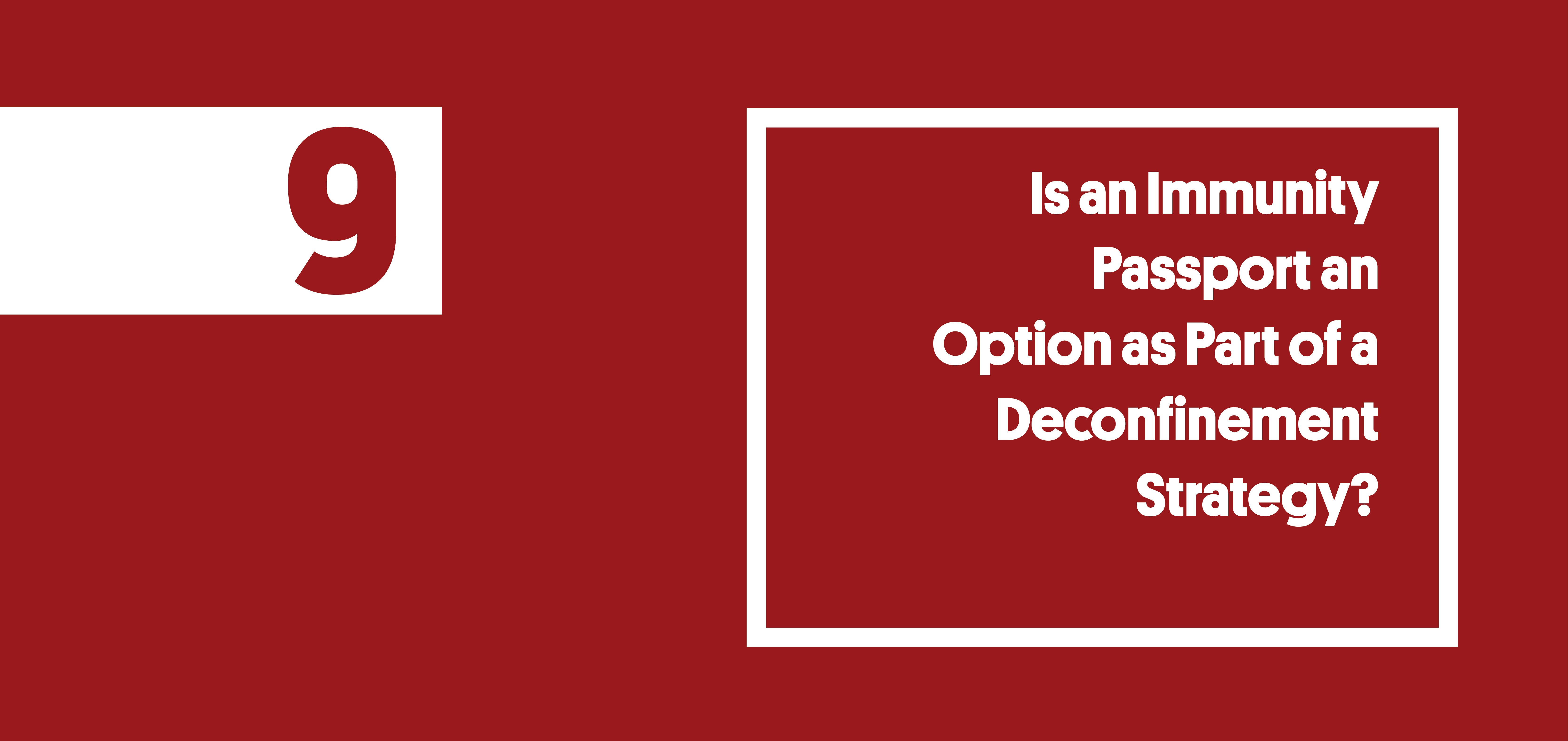Is an Immunity Passport an Option as Part of a Deconfinement Strategy?
Series | COVID-19 & response strategy #9
07.05.2020This document is part of a series of discussion notes addressing fundamental questions about the COVID-19 crisis and response strategies. These documents are based on the best scientific information available and may be updated as new information comes to light.
This issue, written by Denise Naniche, Scientific Director and Research Professor at ISGlobal, addresses the debate on immunity passports. In order to gradually ease lockdown measures, some governments have suggested issuing immunity passports or certificates to individuals who test positive for antibodies to SARS-CoV-2.
This strategy is thought to be helpful in allowing some individuals to return to their previous activities sooner than others. Given the knowledge we have gained in the four and a half months since the first case in Wuhan, China coupled with the great economic and societal pressure for a successful deconfinement, can immunity passports help guide our return to normality?
The Technical and Scientific Answer
The current tests for antibodies to SARS-CoV-2 are very new and have shown high rates of false negatives and positives. If used for deciding on individuals’ access to certain rights and employment, this might unknowingly put a false-positive non-immune individual in a vulnerable position posing a risk to others.
For argument’s sake, let’s assume we have a highly accurate test. What will a positive result tell us? It will indicate the presence of antibodies, but may not inform us as to whether or not these antibodies ensure protective immunity. There are many kinds of antibodies and not all of them are protective.
In light of this evidence, the WHO issued a scientific brief on April 24th 2020 stipulating: “At this point in the pandemic, there is not enough evidence about the effectiveness of antibody-mediated immunity to guarantee the accuracy of an “immunity passport” or “risk-free certificate.” This is based on the statement that “there is currently no evidence that people who have recovered from COVID-19 and have antibodies are protected from a second infection”.
The Social and Ethical Answer
The proponents of the certificates argue that those individuals who have SARS-CoV-2 antibodies could return to work and help jump start the economy. Let’s again assume we have an accurate SARS-CoV-2 antibody test and we use it to prioritize people who return to work. Considering that the overall prevalence of immunity against SARS-CoV-2 in the general population may be between 1%-20% depending on area, this translates into giving a priority or privilege to a very small proportion of the work force.
But, even if the proportion were higher, such a certificate would create great inequality by granting an immuno privilege to a select few.
The discrimination via a COVID-19 immunity certificate could lead to stigma against the non-immune individuals branding them as “unemployable”. Access to many amenities could be denied on the basis of immunological discrimination: life insurance, education, salary increases, promotions, visa applications. People might also deliberately seek to become infected or to falsify certificates in order to go back to work.
Does the Immunity Certificate Have a Place in Society which Strives for Equity?
When a COVID-19 vaccine is developed and shown to confer detectable immunity, we can envision delivery of an immunization certificate. Vaccines are considered a public good, provided for individual and collective benefit and striving for immunoequality rather than immunoprivilege.




